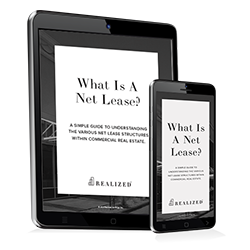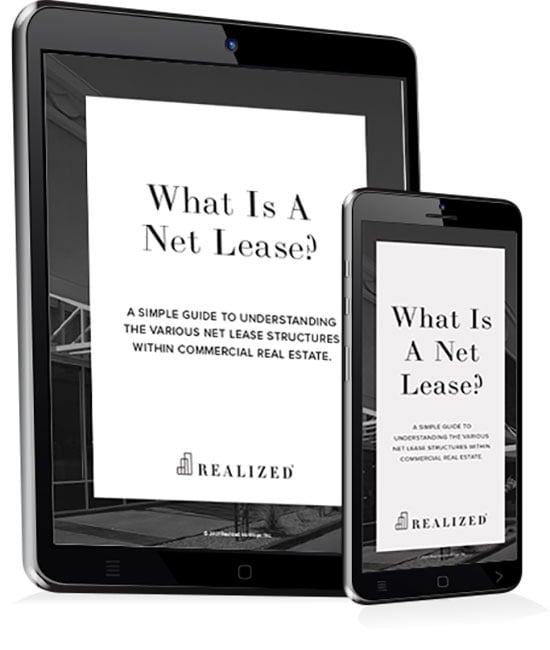
Investment properties with triple net leases in place can provide a number of potential benefits to landlords.
Triple net leases -- also known as NNN leases -- can help reduce your investment risk in commercial properties because the majority of standard property expenses are passed on to the tenants. They also can provide a steady and predictable income from AAA-rated tenants.
In this article we’ll examine the most common costs landlords typically pay in triple net lease agreements and reasons why this lease structure often proves beneficial to commercial real estate investors.
How Triple Net Leases Can Benefit Landlords
If you are exploring potential replacement properties to complete a 1031 exchange, or you are considering investing in commercial real estate through a Delaware Statutory Trust, it’s important to know how the NNN lease structure works.
In a triple lease agreement, the majority of a building’s standard operating costs are assumed by the tenant. Typically, tenants pay the “net” amount for these three expenses:
- Property taxes
- Building insurance
- Common area and routine building maintenance
In most NNN leases, these costs, along with base rent, are charged to tenants over time. Since triple net leases usually range between 10 and 20 years, landlords can expect long-term passive management of their investments. This lease structure is favored by creditworthy national tenants such as Dunkin’, Rite-Aid, Big Lots!, AutoZone, and Winn-Dixie, to name a few, as well as fuel retailers, convenience store operators, and fast-food franchises that prefer to assume full responsibility for their own signage and branding.
While it may sound like all landlords do is collect hassle-free monthly rent checks, they often are responsible for costs related to their investment properties.
What costs do landlords pay in triple net lease agreements?
You are responsible for the property’s mortgage, of course. While tenants pay for the triple net expenses listed above, oftentimes they will negotiate limit caps for major maintenance or repair expenses. These can include the installation of new boilers and chillers, repaving a parking lot, or replacing a roof. Depending on the terms of the lease, costs for these high-ticket items may fall upon the landlord’s shoulders. You also may have to pay for major problems that fall outside of standard maintenance, such as improvements or shoring to the building’s foundation or structural walls.
Tenants nearing the end of their leases also may defer paying for major expenses such as electrical, plumbing, or HVAC issues. If they leave, landlords will have to fix any issues with these crucial building systems prior to finding new tenants.
Building owners can avoid this issue by having annual inspections conducted at their properties, while investors seeking real assets with triple-net lease agreements in place might consider hiring independent inspectors to fully vet properties and their major operating systems prior to inking a deal.
Triple net leases offer investors the potential for long-term income from stable and creditworthy tenants with few ongoing expenses. However, since NNN lease terms can have a wide range of variables, you should carefully examine all potential liabilities as well as engage expert counsel to help ensure you fully understand the pros and cons of this lease structure.



